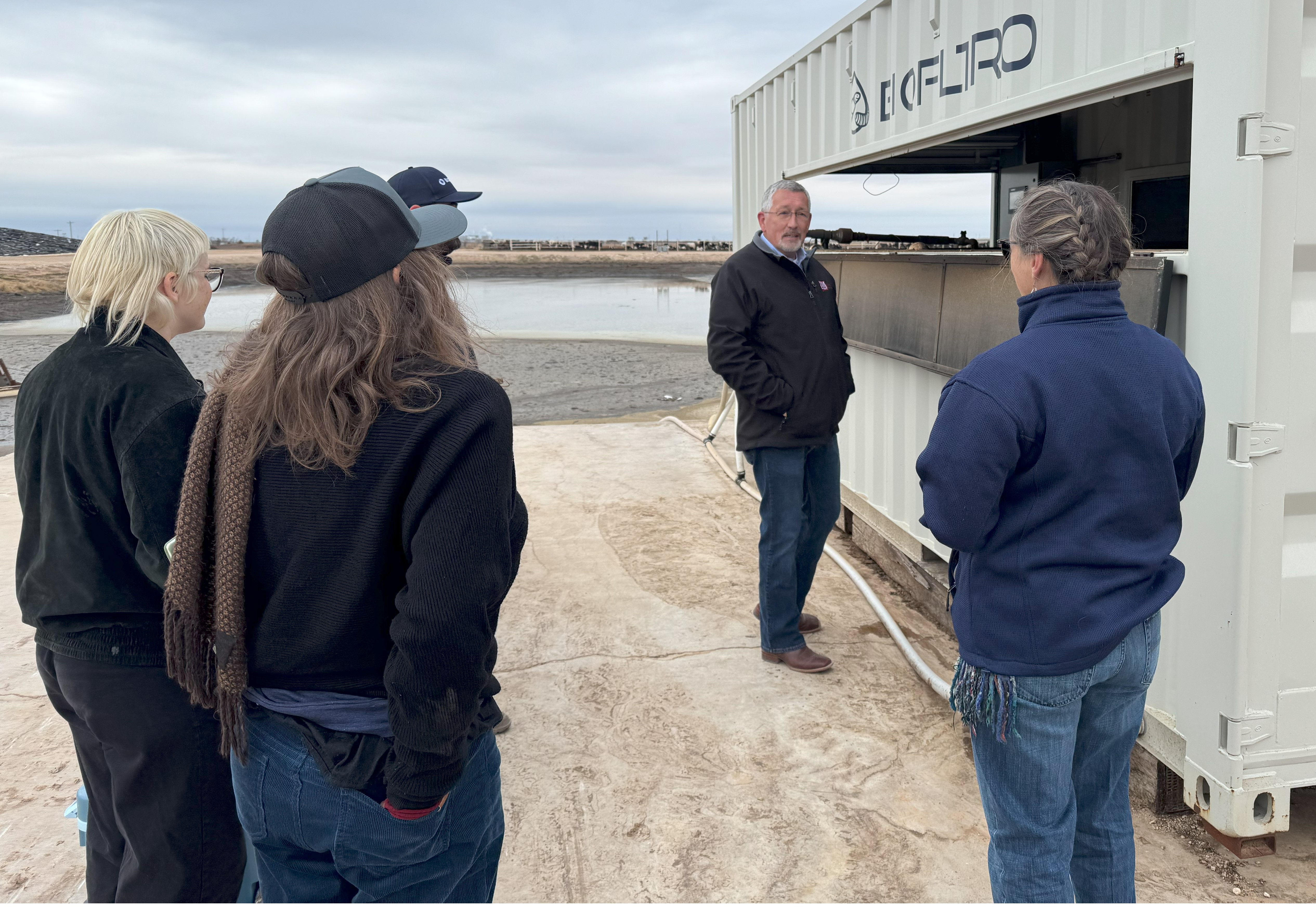Dairy farms in Texas and New Mexico recently took center stage for innovation and sustainability during two Vermiculture Field Days. These events provided a firsthand look at BioFiltro’s Biodynamic Aerobic (BIDA) vermifiltration system. Dairy MAX partnered with New Mexico State University and BioFiltro in 2024 to install pilot vermifiltration units at Rajen Dairy in New Mexico and Red Rock Dairy in Texas to treat a portion of their green water.
Goals of the Pilot Program
The field days were part of a larger mission to validate and expand the use of vermifiltration technology in the Southwest. The pilot systems aim to:
- Prove the Concept: Demonstrate the ability of vermifiltration to efficiently remove phosphorus and nitrogen from green water.
- Develop the Market: Build awareness of the technology, showcasing its potential to generate carbon credits and vermicompost.
- Scale Up: Lay the groundwork for larger, full-scale systems across the region.
These pilot programs are the initial step in adapting a proven technology—already successful in states like California, Oregon, and Washington—to the unique challenges of a hotter, drier climate.
An additional focus is testing alternative feeding materials for the vermifiltration beds. This includes transitioning from traditional options like woodchips to innovative materials that repurpose agricultural waste sourced locally within the region.
Vermifiltration in Action
The field days offered attendees, including farmers, researchers, and industry leaders, an opportunity to tour the pilot units installed at the dairies. These systems treat a portion of green water, showcasing their ability to remove organic matter.
Through guided tours and Q&A sessions with BioFiltro experts, participants explored how the BIDA system works:
- Earthworms at Work: The system uses earthworms and microbial communities to break down waste, transforming it into nutrient-rich vermicompost.
- Reusing Clean Water: The liquid fraction is clean enough to be repurposed. The recycled water can be efficiently used for flushing barns and irrigating crops.
Why Vermifiltration Matters for Dairy Farmers
The benefits of vermifiltration go beyond just effective manure management. As highlighted during the field days, this innovative approach delivers:
- Environmental Benefits:
- Reduction of 6-8 MTCO2e greenhouse gas emissions and generates 3 cubic yards of vermicompost per milking freestall cow annually.
- Improved air quality through odor reduction.
- Cleaner water suitable for drip irrigation systems.
- Economic Advantages:
- Lower costs and complexity of manure handling at the lagoon.
- Reduced acreage needed for solids and nutrient application by 50-90%.
- Opportunities in carbon credit markets and regenerative agriculture initiatives.
- Generation of separated solids for on-farm use or sale as compost.
During the Q&A sessions, BioFiltro experts emphasized the broader implications of adopting sustainable practices. By integrating vermifiltration systems, dairies can reduce their environmental footprint while improving operational efficiency. The potential for generating high-quality compost and accessing carbon credit markets adds financial viability to the equation, ensuring the long-term sustainability of the dairy industry.
Conclusion
The Vermiculture Field Days brought together industry leaders, researchers, and dairy farmers to explore the transformative potential of worm-powered manure management.
For more insights into sustainable agriculture, stay connected with BioFiltro, Dairy MAX, and New Mexico State University. With partnerships like these, the dairy industry is poised to lead the way in sustainable agriculture.




